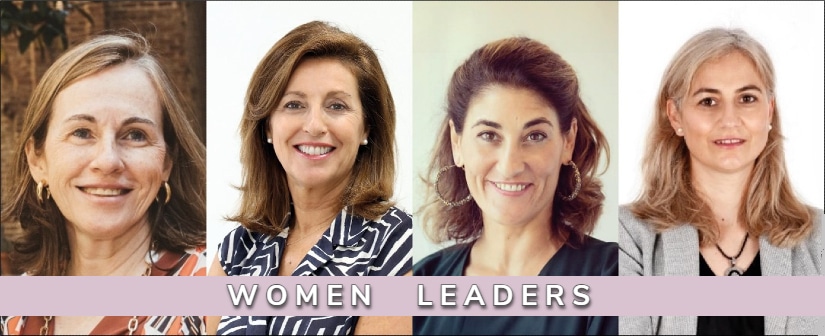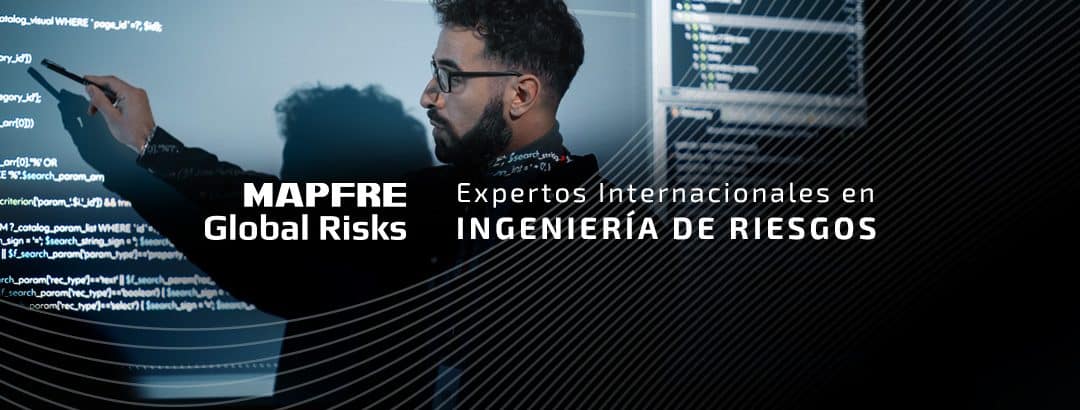Cristina Leon Vera | 05/03/2024
The female presence in the insurance industry is becoming increasingly notable; they occupy 53% of the workforce in the industry. Although parity has not yet reached management positions, nearly one-third of these positions are held by admirable and highly regarded women. There are various initiatives to mitigate the gap that still exists in senior management positions and the insurance industry even has a sectoral initiative: Empower Woman in Insurance (#RedEWI). This is an INESE-powered Network that already encompasses more than one hundred companies and a mixed Advisory Board made up of men and women.
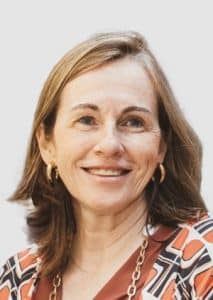
Flavia Rodríguez-Ponga, General Director of Consorcio de Compensación de Seguros (Insurance Compensation Consortium)
“Luckily life took me to the insurance sector”
She has 35 years of experience in the sector, since she passed the examinations for the Cuerpo Superior de Inspectores de Finanzas del Estado (Higher Corps of Finance Inspectors of the State) in 1988 and chose the Directorate General of Insurance (DGS) as her goal. “I didn’t think I’d like it so much. After two years, I left for the Directorate General of Taxes at the Ministry of Finance and, three years later, I had the honor of being chosen Deputy Director General of Insurance and Legislative Policy,” she explains.
Her impeccable history has led her through various positions of responsibility to her current position, from which she tells us of a very positive development in the sector since her beginnings. “I remember those meetings where almost everyone was male and where I was almost an exception; today, I don’t have that feeling anymore. Further progress must be made, but the difference is that today it is normal for women to hold management positions, even if the percentage is still low,” she says.
She recognizes that she has faced challenges in her career, not because she is a woman but “for being young and reaching positions of responsibility early on, because she has created a large family, or because of all this to some extent. I have faced them naturally and by working professionally,” she says.
She encourages young women considering starting a career in the insurance industry to learn the secrets of this industry, which has far more job appeal than might be assumed. “I’ve had the chance to move, and I’ve always stayed. I’m in an industry where I feel good and can work with great professionals,” she concludes.
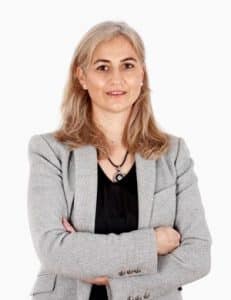
María José Laguna, President of the Colegio de Mediadores de Seguros de Valladolid (Valladolid Insurance Brokers’ Association)
“We have a very nice job and the opportunity to help people”
Her first contact with brokering was through her father, with whom she did summer work while studying Law. She took over the family business she has been running for more than twenty years, “with better and worse moments, but for now we’re still here, after two economic crises and a pandemic that, in our case, did affect the business,” she acknowledges. In 2004, she joined the Board of Directors of the Valladolid Insurance Brokers’ Association, which she has chaired since 2020. “For many years I was the only woman on the Board and now, however, there are Gabriela Hermosilla as Vice President, Diana Alfonso as Treasurer and myself as President,” she explains.
In this environment, she says that the sector has been accepting a greater female presence and, like Flavia, her youth also presented a challenge. “Trust has to be earned and it’s hard at first,” she admits. “I also have to say that I have had colleagues from whom I have always received exceptional treatment; I have always felt fortunate for this, respected, supported and I think valued, as well,” she adds.
Looking at the future of the sector, she calls for support in terms of work-life balance, especially in insurance companies, where the workday is not always respected. “I believe that the flexibility and commitment of workers would allow more women to reach positions of responsibility, historically filled by men who had their family needs met.”
She would like to speak to younger generations with complete openness: from the security provided by a stable sector, to the disadvantages of self-employed brokering. With its ups and downs, she speaks proudly of her association. “We do a great job of keeping in touch with a lot of people, it’s not monotonous at all, and when customers recognize your work it’s very rewarding,” she concludes.

Susana Pérez, General Director of INESE
“The insurance industry should be proud of everything it is doing to achieve gender diversity”
“Like most professionals in the industry, I arrived by chance. Through the vagaries of life I met Ernesto Caballero, who was the Honorary Chairman of INESE, the industry’s newly launched business school. He arranged an interview for me with the director and I’m still here today,” explains Susana, who adds that in her 35-year career she has gone through various positions and owners with whom she has gained a lot of experience. In 2013, she was appointed General Manager in Spain, a role she continues and which she considers to be exciting. “I had to report to our shareholder in London, Wilmington plc, so there were a lot of learning experiences. We have been a 100% Spanish company for a year and the stability, trust and passion remain the same,” she says.
From her position she speaks with true pride of what “is being done to achieve gender diversity in the industry. There are numerous companies, both large and small, that drive very specific policies and measures to accelerate women’s leadership in their organizations,” she says. “The presence of female leaders is already a majority in significant departments, such as compliance verification, HR or training, and in others it is already more than 40%.”
Personally, she acknowledges having not experienced any incidents of discrimination due to being a woman, although “there were few women in the sector, especially in some professions such as brokers and appraisers; they were all men. I remember exams that I went to where there were only men and also some more anecdotal situations where, sometimes, there was some condescending comment for being a young woman,” she recalls. She also says that she had to give up certain things when she became a mother. “I remember that when I had my second daughter, I couldn’t enjoy the full leave since I was the Training Director. In a medium-sized business, without tools like the ones we have today—the internet, remote work—it wasn’t so easy to stop working. It was complex to delegate or divide tasks among a small workforce,” she says.
The changes that are being implemented by governments, companies and society are promising, both in terms of parity and balance. “The insurance industry has become aware that things have to change, and they are working on it, although not all companies are doing so with the same speed. I think it is important to incorporate gender equality into the strategic plan, define specific objectives, work on actions and monitor them,” she says, in addition to adding the need to “listen to women, find out their barriers, challenges and ambitions, identifying those with the greatest potential and accompanying them with a development and mentoring plan that helps them in their career. And finally, to make all of our women leaders visible internally and externally, as they will be the benchmark that future female leaders can look up to,” she says. “This whole journey has to be done with the help of men, as well; male leadership continues to prevail in our sector and we need their involvement, as this is not a ‘women’s thing.’ It is a matter of social justice, but also of business competitiveness where we all win,” she concludes.
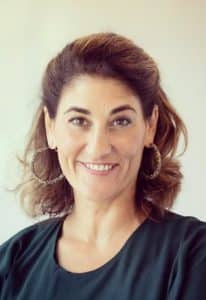 Alicia Soler, AGERS (Asociación Española de Gerencia de Riesgos y Seguros [Spanish Association of Insurance and Risk Management]) Executive Director
Alicia Soler, AGERS (Asociación Española de Gerencia de Riesgos y Seguros [Spanish Association of Insurance and Risk Management]) Executive Director
“We are experiencing remarkable improvements in gender development and diversity”
Her first steps in the industry, like other colleagues, were through an internship. In her case, in 1995 and at Winterthur in Valencia. “From there I became part of the Argente & Carratalá team. Maciste Argente was my mentor and was key to undertaking the next project in Madrid, where I led the insurance brokerage of a Corporate Automotive Corporation,” she says. After specializing in risk management with AGERS, where, in addition to creating a department at AICA, she has served as Executive Director since 2014. She has witnessed the growth of the risk management community in Spain, its contribution in Europe and the exciting future ahead.
Her view of women in the sector in the future is equally hopeful. “Although we face historical challenges in terms of representation, I have seen very remarkable growth; there is greater inclusion and recognition of female skills in these strategic roles,” she says. Personally, she has faced various challenges in her career, such as disclosing and promoting risk management. “From my perspective, these challenges are similar to what a man would face; in my case and situation, I don’t perceive significant differences,” she acknowledges. “We are experiencing remarkable improvements in gender development and diversity. I am pleased to see an ongoing effort in creating work environments that foster equal opportunities and merit-based recognition. Together, we’re moving toward a more equitable future for all,” she emphasizes.
In this context of undoubted optimism, Alicia certainly encourages young women to “explore the broad and dynamic world of risk management and insurance. This sector, with its international focus, offers experiences in the legal, financial and engineering areas, as well as a variety of other disciplines.” Her final tip? “Focus on continuing education, explore various related disciplines, and build a strong network of mentors and industry professionals,” she concludes.


